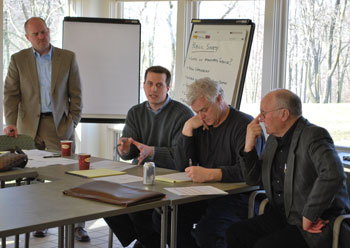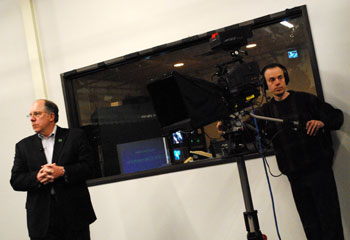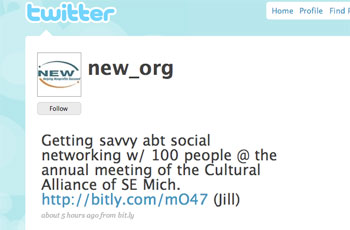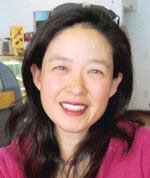
Saline schools superintendent Scot Graden, standing, served as facilitator during Saturday's retreat at Rolling Hills County Park. County commissioners, from left: Jeff Irwin, Ken Schwartz, Wes Prater.
No decisions about budget cuts were made at Saturday’s retreat of the Washtenaw County Board of Commissioners – since organizing it a few weeks ago, they’ve said all along that wasn’t the purpose. Rather, the group of 11 commissioners spent three hours talking through their priorities for the county, a discussion that some commissioners hope will lay a foundation for where to cut expenses as the county deals with a projected $26 million deficit in 2010-11.
The half-day retreat at Rolling Hills County Park was also attended by other elected officials – including sheriff Jerry Clayton, water resources commissioner Janis Bobrin and county prosecutor Brian Mackie – as well as leaders of a few of the 17 unions representing county employees, some county staff and the media. Though some of these people commented during the meeting, for the most part the event was focused on commissioners sharing their thoughts about refining county priorities. The discussion was led by Scot Graden, superintendent of Saline Area Schools and a lifelong Washtenaw County resident.
One piece of news did emerge: county administrator Bob Guenzel, in response to a query from commissioner Wes Prater, said the 2009 equalization report had just been completed and showed that the county’s taxable value was down less than expected. They’d projected a drop of 3%, but the decline in taxable value came in at 2.29%. Though they’d make some adjustments, Guenzel said, “2009 is not our problem.”
Board chair Rolland Sizemore Jr. kicked off the retreat with, “Let’s get it on so I can go home and wash windows.” [Full Story]









